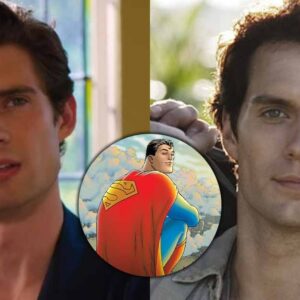Country Music Television (CMT) has taken a decisive stance by banning Taylor Swift from their channel, asserting that her presence is deemed more unfavorable than that of iconic country star Garth Brooks. The decision, which marks a notable shift in CMT’s programming strategy, has sparked discussions and debates across the music industry and among Swift’s dedicated fan base.
The announcement comes as a surprise to many, considering Swift’s significant contributions to country music earlier in her career and her subsequent evolution into a global pop phenomenon. However, recent developments in Swift’s artistic direction and her outspoken advocacy for social and political causes have evidently clashed with the traditional values espoused by CMT.
The decision to ban Swift from CMT appears to be rooted in a divergence of artistic and ideological viewpoints. While Swift’s music has undoubtedly resonated with millions worldwide, her outspokenness on various issues, including LGBTQ+ rights and feminism, has sometimes positioned her at odds with the more conservative elements within the country music community.
CMT’s comparison of Swift to Garth Brooks, a revered figure in country music known for his chart-topping hits and widespread influence, underscores the magnitude of their decision. For many fans of the genre, Brooks represents a quintessential embodiment of country music traditions and values, making the juxtaposition with Swift particularly striking.

The banishment of Swift from CMT reflects a broader trend of polarization within the music industry, where artists’ personal beliefs and actions increasingly influence their reception among audiences and media platforms. In an era characterized by heightened social consciousness and political activism, artists like Swift have embraced their roles as advocates for change, often at the expense of alienating more conservative audiences.
The decision also raises questions about the role of media platforms in shaping cultural discourse and the boundaries of artistic expression. As gatekeepers of content, networks like CMT wield considerable influence over the visibility and accessibility of artists, effectively shaping public perceptions and tastes. By imposing restrictions on certain artists, they signal their adherence to particular values and standards, thereby shaping the landscape of the music industry.

For Swift’s fans, the decision by CMT represents a disheartening setback in their efforts to champion her music and advocacy. Many have taken to social media to express their disappointment and frustration, highlighting the deep emotional connection they share with Swift’s music and the profound impact it has had on their lives.

In response to the ban, Swift has yet to issue a formal statement, though her silence on the matter has not gone unnoticed by fans and industry observers. As one of the most influential figures in contemporary music, Swift’s actions and statements carry significant weight, and her response to CMT’s decision may shape perceptions of her resilience and determination in the face of adversity.





